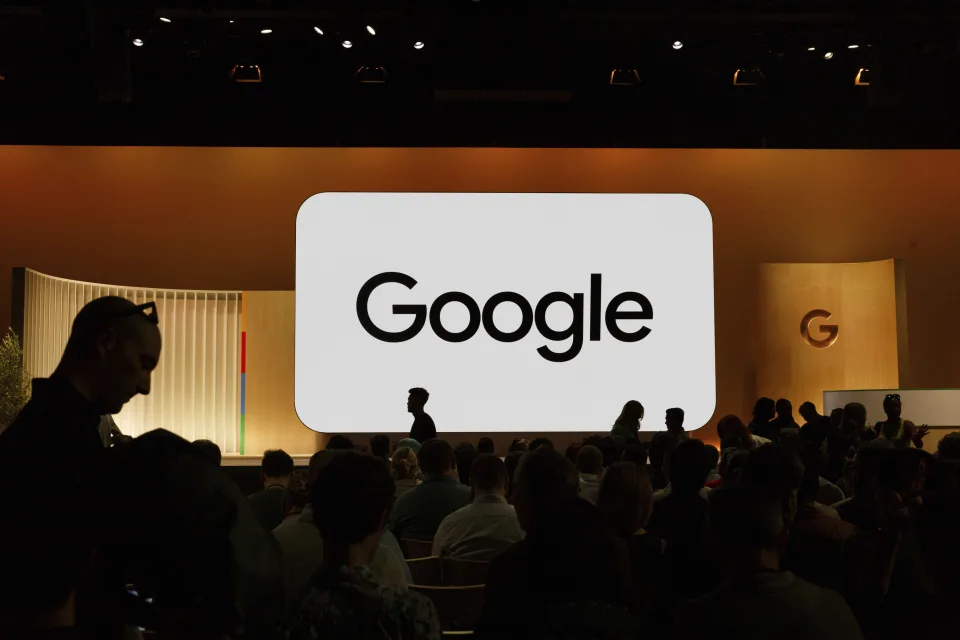The UK Competition and Markets Authority (CMA) has recently raised concerns over Google’s advertising technology (ad tech) practices, accusing the tech giant of stifling competition in the online ad space. This latest development adds to a growing list of global investigations into Big Tech’s dominance in the digital advertising ecosystem.

Google’s Dominance in Ad Tech: A Breakdown
Google’s dominance in the digital advertising world is no secret. From its search engine monopoly to its overwhelming presence in the ad tech supply chain, Google has cemented itself as a crucial player at multiple levels of the digital advertising process. The CMA claims that Google’s behavior in this market is harming competition, with far-reaching implications for advertisers, publishers, and consumers alike.
The core of the issue lies in Google’s ad tech stack, a suite of tools that connects advertisers with publishers and consumers. According to the CMA, Google leverages its control over these tools to gain an unfair advantage, restricting other companies’ ability to compete fairly. This harms smaller ad tech providers and, ultimately, consumers, who face fewer choices and higher prices due to limited competition.
The CMA’s Investigation: Key Findings
The CMA’s ongoing investigation, which has been closely watched by regulators around the world, highlights several key areas where Google’s behavior may be anti-competitive. One of the primary concerns is Google’s control over both the demand and supply sides of the digital ad market.
On the demand side, Google offers its Google Ads service, which helps businesses buy advertising space. On the supply side, it runs Google Ad Manager, a tool that helps publishers sell ad space. By controlling both sides of the transaction, Google has the ability to influence prices, competition, and even the data that flows between advertisers and publishers.
The CMA argues that this dual role gives Google undue influence and allows it to manipulate the ad tech ecosystem to its advantage. For instance, the watchdog claims that Google’s “self-preferencing” practices—where it favors its own services over rivals—could limit the ability of competitors to thrive, creating a barrier to entry for new players.
Impact on the Digital Advertising Industry
The digital advertising landscape is a multi-billion-dollar industry, and any shifts in competition can have significant ripple effects. The CMA’s investigation into Google’s ad tech practices could lead to major changes in how the market operates.
If the CMA’s claims are upheld, Google could face severe regulatory action, including hefty fines or even structural changes to its business. The potential for forced separation of Google’s ad tech services has been floated, which could dramatically alter the way digital advertising is conducted globally.
For advertisers and publishers, such a move could level the playing field and create opportunities for more competition and innovation in the ad tech space. Smaller firms that have been squeezed out by Google’s dominance may find new avenues for growth. However, any regulatory action could also disrupt the ad market in the short term, potentially leading to price volatility and uncertainty for businesses that rely on digital advertising for revenue.
Google’s Response to the Accusations
Google has denied the CMA’s accusations, arguing that its ad tech services benefit both advertisers and publishers. The company claims that its tools increase efficiency and transparency in the digital ad market, helping businesses of all sizes reach their target audiences.
In a statement, a Google spokesperson said, “Our advertising technology tools help websites and apps fund their content and enable businesses of all sizes to reach customers effectively. The digital advertising industry is fiercely competitive, and we will continue to engage constructively with the CMA to demonstrate how our practices support businesses and benefit consumers.”
Google has also pointed to the highly competitive nature of the digital ad market, with other tech giants like Meta (formerly Facebook), Amazon, and Apple all vying for dominance. The company argues that it faces stiff competition from these players and that its market position is not as dominant as regulators suggest.
What’s Next for Google and the CMA?
The CMA’s investigation is far from over, and the coming months will be crucial in determining the future of Google’s ad tech business in the UK and beyond. If the watchdog finds that Google’s practices are indeed harming competition, it could lead to significant regulatory action, not just in the UK but across the European Union and the United States.
Regulators worldwide are increasingly scrutinizing Big Tech’s role in various markets, from digital advertising to e-commerce, and this case could set a precedent for future investigations. In the EU, for example, the Digital Markets Act aims to curb the power of tech giants like Google, and the CMA’s findings could influence how similar regulations are implemented.
Implications for Advertisers and Consumers
For advertisers, the outcome of the CMA’s investigation could lead to more competitive pricing and a wider range of ad tech providers to choose from. Smaller ad tech firms could flourish if Google is forced to reduce its control over the market, offering more innovative and cost-effective solutions for businesses.
Consumers could also benefit from a more competitive market. With greater competition in digital advertising, websites and apps that rely on ad revenue may be able to offer better services or reduce the number of ads displayed to users. Additionally, a reduction in Google’s influence could lead to increased data privacy protections, as smaller ad tech providers may offer more transparent and consumer-friendly data practices.
The Road Ahead
The CMA’s claims against Google mark a significant development in the ongoing global scrutiny of Big Tech’s role in the digital economy. While Google has fiercely defended its ad tech practices, the outcome of this investigation could reshape the digital advertising industry for years to come. Whether Google faces fines, business restructuring, or other penalties, one thing is clear: regulators are increasingly determined to ensure that competition thrives in the digital marketplace.
As the CMA continues its investigation, advertisers, publishers, and consumers alike will be watching closely to see how this case unfolds and what it means for the future of digital advertising.
For more insights and updates on this topic, explore our latest articles at Digital Digest.




